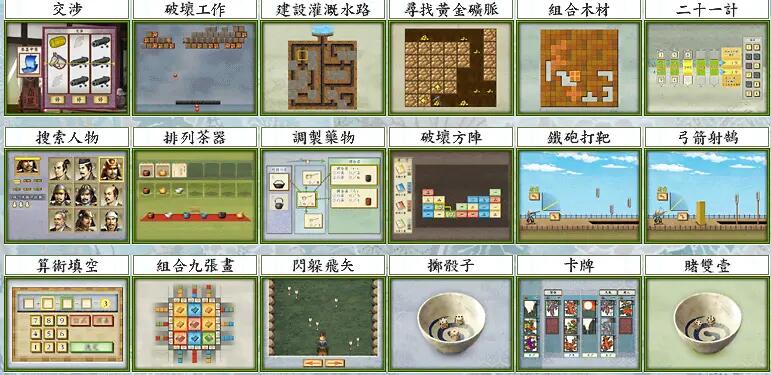1
2
3
4
5
6
7
8
9
10
11
12
13
14
15
16
17
18
19
20
21
22
23
24
25
26
27
28
29
30
31
32
33
34
35
36
37
38
39
40
41
42
43
44
45
46
47
48
49
50
51
52
53
54
55
56
57
58
59
60
61
62
63
64
65
66
67
68
69
70
71
72
73
74
75
76
77
78
79
80
81
82
83
84
85
86
87
88
89
90
91
92
93
94
95
96
97
98
99
100
101
102
103
104
105
106
107
108
109
110
111
112
113
114
115
116
117
118
119
120
121
122
123
124
125
126
127
128
129
130
131
132
133
134
135
136
137
138
139
140
141
| public class Point24 {
public static void main(String[] args) {
calculate(Lists.newArrayList(6, 6, 6, 6)).forEach(System.out::println);
System.out.println();
calculate(Lists.newArrayList(1, 2, 1, 7)).forEach(System.out::println);
System.out.println();
calculate(Lists.newArrayList(3, 3, 7, 7)).forEach(System.out::println);
System.out.println();
calculate(Lists.newArrayList(3, 3, 8, 8)).forEach(System.out::println);
System.out.println();
calculate(Lists.newArrayList(1, 5, 5, 5)).forEach(System.out::println);
System.out.println();
calculate(Lists.newArrayList(1, 9, 8, 7)).forEach(System.out::println);
System.out.println();
}
public static Set<String> calculate(List<Integer> numbers) {
List<String> opList = new ArrayList<>();
opList.add("+");
opList.add("-");
opList.add("*");
opList.add("/");
List<List<Integer>> numberPerm = Permutation.permutation(numbers);
List<List<String>> opSample = Sample.sample(opList, 3);
return crossJoin(numberPerm, opSample);
}
public static Set<String> crossJoin(List<List<Integer>> a, List<List<String>> b) {
Set<String> expression = new HashSet<>();
a.forEach(ai -> {
b.forEach(bi -> {
List<String> result = cal(ai, bi);
if (result != null) {
expression.addAll(result);
}
});
});
return expression;
}
private static List<String> cal(List<Integer> numbers, List<String> ops) {
try {
List<Exp> exps = numbers.stream().map(i -> new Exp(i.doubleValue())).collect(Collectors.toList());
List<Integer> opIndex = Lists.newArrayList(0, 1, 2);
List<List<Integer>> permutation = Permutation.permutation(opIndex);
return permutation.stream().map(oi -> {
Integer first = oi.get(0);
Integer second = oi.get(1);
Integer third = oi.get(2);
Exp op1 = new Exp(ops.get(first), exps.get(first), exps.get(first + 1));
Exp op2;
Exp op3 = new Exp(0.0);
if (second - first == 1) {
op2 = new Exp(ops.get(second), op1, exps.get(second + 1));
if (third > second) {
op3 = new Exp(ops.get(third), op2, exps.get(third + 1));
} else {
op3 = new Exp(ops.get(third), exps.get(third), op2);
}
} else if (second - first == -1) {
op2 = new Exp(ops.get(second), exps.get(second), op1);
if (third > second) {
op3 = new Exp(ops.get(third), op2, exps.get(third + 1));
} else {
op3 = new Exp(ops.get(third), exps.get(third), op2);
}
} else if (second - first == 2) {
op2 = new Exp(ops.get(second), exps.get(second), exps.get(second + 1));
op3 = new Exp(ops.get(third), op1, op2);
} else if (second - first == -2) {
op2 = new Exp(ops.get(second), exps.get(second), exps.get(second + 1));
op3 = new Exp(ops.get(third), op2, op1);
}
if (Math.abs(op3.value - 24) < 1e-5) {
return op3.simpleString();
}
return null;
}).filter(Objects::nonNull).collect(Collectors.toList());
} catch (Exception e) {
}
return null;
}
private static class Exp {
private double value;
private String exp;
public Exp(double value) {
this.value = value;
this.exp = String.valueOf((int) value);
}
public Exp(String op, Exp a, Exp b) {
value = op(op, a.value, b.value);
exp = "(" + a.exp + op + b.exp + ")";
}
@Override
public String toString() {
return exp;
}
public String simpleString() {
if (exp.startsWith("(") && exp.endsWith(")")) {
return exp.substring(1, exp.length() - 1);
} else {
return exp;
}
}
}
private static double op(String op, Double a, Double b) {
switch (op) {
case "+":
return a + b;
case "-":
return a - b;
case "*":
return a * b;
case "/":
return a / b;
default:
throw new RuntimeException("error op");
}
}
}
|
